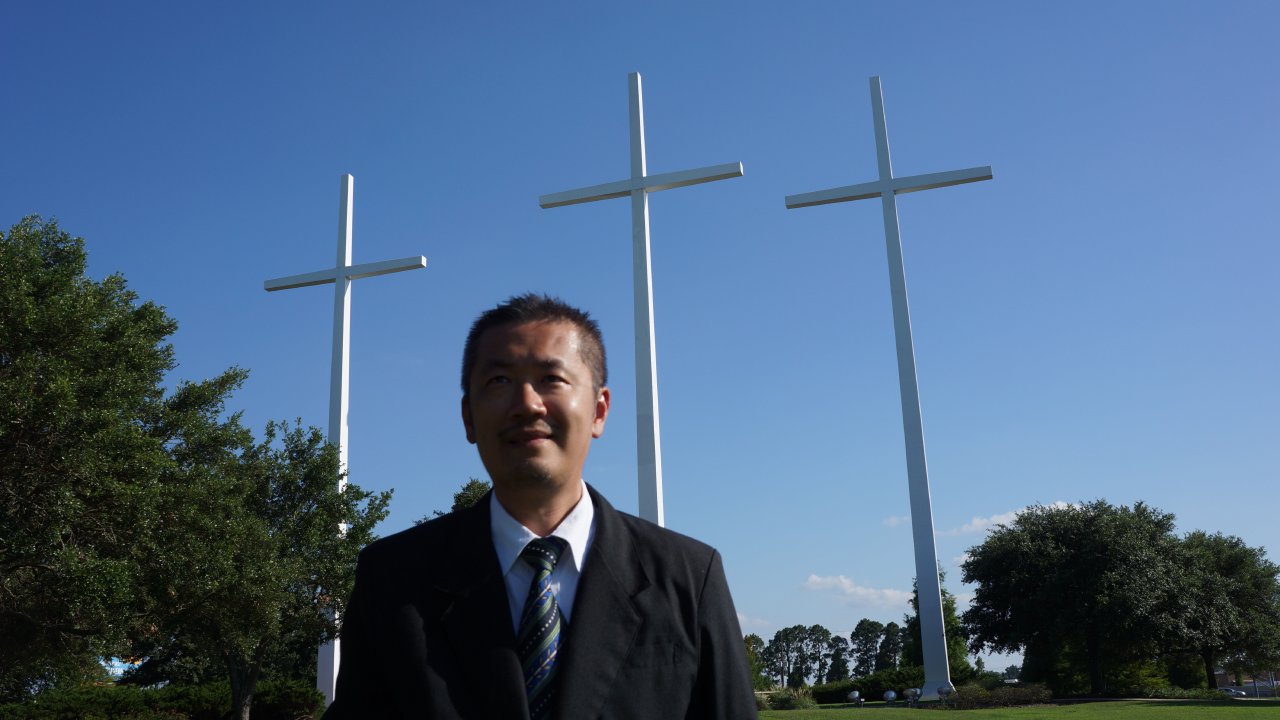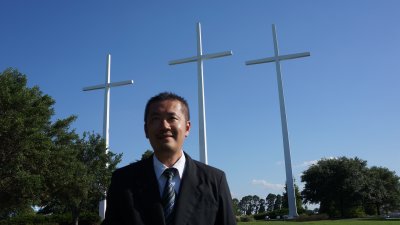The church of Jesus Christ often swings to extremes – parts of it are legalistic, which is attempting to attain righteousness and holiness by conforming to rules and regulations, as well as performing outward religious works and ordinances. Yet, there are other segments who are licentious or lascivious, which is using God’s grace as a license to live carnal lifestyles. Whether Christians lean towards legalism or licentiousness, some of us reflect these mind-sets and behaviours outrightly. Others are more subtle. Also, there are some preachers who teach false doctrines and heresies. Others mix some truth in with error. We are to be firm and take a strong stand against such deception. We need a Biblical balance of God’s law and grace. It is grace that empowers us to live a Spirit-filled life. It is grace that enables us to be free from the law of sin and death.
For us to understand and apply the foundation doctrine of righteousness and victory we have by faith in Jesus Christ, we can learn much from the writings of the Apostle Paul given under inspiration by the Holy Spirit, such as the book of Romans and the book of Galatians, among other epistles. We can see Paul, who once persecuted the church, now preaches the gospel of grace. We see Paul reproving Peter, a fellow apostle, for reverting to law. We also see Paul’s warnings against the works of the flesh and lasciviousness. These are examples and exhortations for us, to walk in true liberty of God’s grace, in order to avoid the dangers of legalism and licentiousness. We need a revelation of the New Covenant. Christ hath redeemed us from the curse of the law (Galatians 3:13) and the works of the flesh (Galatians 5:19), in order for us to experience His favour and freedom. We are neither to be legalistic nor licentious, but to stand fast in the liberty of Jesus Christ, on the basis of what He has done on the cross, to set us free from the bondage of the law and the arm of flesh.
One of the questions Christians ask is, “Since we are under grace, should we keep the law?” In the King James Version of the Bible, the word “law” appears over 500 times. In some other translations, it occur more than 600 times. In the Bible, the word, “law” has a number of definitions and applications.
In the Old Testament, the word “law” primarily and most prominently refers to the Law of God given to Moses comprising three parts, namely, moral, ceremonial and civil, with the moral part which includes the Ten Commandments.
In the New Testament, the word “law” is used in other contexts and meanings. For example, in Romans 7:22 to 25, we see the various “laws” that are being alluded to, "For I delight in the law of God after the inward man: But I see another law in my members, warring against the law of my mind, and bringing me into captivity to the law of sin which is in my members. O wretched man that I am! who shall deliver me from the body of this death? I thank God through Jesus Christ our Lord. So then with the mind I myself serve the law of God; but with the flesh the law of sin." Then in Romans 8:2, we read, "For the law of the Spirit of life in Christ Jesus hath made me free from the law of sin and death." In these verses, we see that there are:
· The law of God,
· The law of my mind,
· The law of sin and death, and
· The law of the Spirit of life in Christ Jesus.
Furthermore, there are other types of spiritual laws or principles, if you will, such as:
· The law of faith mentioned in Romans 3:27,
· The law of sowing and reaping in Galatians 6:7,
· The law of Christ in Galatians 6:2, and
· The law of liberty in James 1:25.
These applications give us the blueprint for living a victorious Christian life.
Alright, to answer the question, “Since Christians are under grace, should we keep the law?” The issue of law and grace has been a contentious subject in the church. Now, when Jesus came, we no longer have to observe the ceremonial laws, rituals and sacrifices of the Old Testament. As far as salvation and sanctification are concerned, it is all by grace, not of works or law. We cannot mix law and grace. The law cannot justify and sanctify us. True faith is having a relationship with Jesus, not religion. It is concerned with “being”, not “doing”. However, out of a living relationship with the Lord, we will produce good works and be obedient to moral laws. The love for God is our source and motivation. We have a hunger and thirst for righteousness, to be Christ-like and bear the fruit of the Spirit.
In our fallen world, we are also to respect civil laws, which are necessary to protect the freedom of people and punish offenders. Without law and order, society will be chaotic. As Christians, we keep God’s moral law and commandments not to earn or merit our salvation. Yes, we are saved by grace and delivered from the law, but grace is not lawlessness. It is the love of God shed abroad in our hearts that fulfills the law. We walk in His Word and His ways, to lead Godly lives. Not in the letter of the law, but by grace through faith. Not in our own self-effort and strength, but by the power of the Holy Spirit. External laws and commandments are meant to be a schoolmaster (or, it could also mean, custodian or guardian) to bring us to Jesus Christ. Only Jesus has ever kept the demands of the law fully and completely. Outward piety cannot remove our sins. It is the work of the Holy Spirit within our hearts and minds, as we put our trust in the Lord and His finished work on the cross, that justifies and sanctifies us.
Today, there’s so much news concerning racism. However, we Christians can be guilty of a number of “ -isms”, namely:
· Legalism
· Asceticism
· Galatianism
· Sectarianism
· Antinomianism
We have already touched on legalism just now, which is attempting to be righteous by observing the law and performing religious works.
Now, closely related to legalism is asceticism, which is the practice of strict self-denial. Now, please do not misunderstand. Denying oneself, and taking up the cross and follow Jesus is Biblical. However, when we reflect a holier-than-thou attitude in the eyes of others, we fall into spiritual pride and self-righteousness.
Next, there is a subtle error that we could be guilty of, which is called Galatianism. This term is derived based on a prevalent situation in the Galatian churches when Paul wrote the epistle then, and still is among segments of the Body of Christ today. In essence, Galatianism means that we are saved by grace, and then kept by law and works. Now, this is subtle and often cloak in spirituality. For example, when we think that it’s our self-effort in more praying, more fasting and more studying of God’s Word that makes us holy, we fall into the deception of Galatianism. Now, all these spiritual disciplines are very important, but they must be based on a loving relationship with the Lord, and not done in a dry, mechanical and fleshly way.
Also, we are to beware of another ‘ -ism’: denominationalism or sectarianism. While it can be a blessing to belong to a particular church, denomination or ministry, when we begin to esteem our group as superior to others in the Body of Christ, it becomes spiritual elitism, which is pride. The spirit of exclusivity must die. We must never boast in our accomplishments or traditions, but we exalt Jesus Christ, the precious Lamb of God! We glory in the cross of the gospel of Christ: for it is the power of God unto salvation! (Romans 1:16)
One more “ -ism” that we will cover is a theological word called “antinomianism”, which means, “anti-law” or “against the law”. This is the opposite of legalism. People who promote “antinomianism” teaches that since we are under grace, it does not matter how we live or behave. Often, antinomianism is expressed by being “licentious” and “lascivious”. This is taking the grace of God to extreme. This is false doctrine which will destroy the soul. While we are dead to the law, the true grace of God does not mean that we are to be lawless.
In fact, in the New Covenant, we are to be obedient not just outwardly, but inwardly. We have the indwelling Holy Spirit who empowers us to live under a new law of the Spirit of life in Christ Jesus. You see, we can obey laws outwardly without allowing God to change our hearts inwardly. But God judges the root of our hearts and the fruits of our works. He knows our thoughts, not just the acts. Yes, we are justified and sanctified by faith in the atoning sacrifice of Christ for our sin. Keeping the law will not save us. But true grace is not lawless. It is out of the abundance of His law of love in our hearts that we walk in the power of the New Covenant. Praise God!
Now, let’s take a closer look at a few other spiritual laws and principles for the Christian life.
Romans 7:23 speaks of the law of the mind, which is like a battleground. Whether we experience victory or defeat, our mind is a powerful weapon. Thoughts are seeds that grow and produce physical and spiritual harvest, whether good or bad.
Many of us think of “law” in the sense of moral code, especially when we read the Old Testament. Keeping the Mosiac law is good but it cannot save us. It is faith in Jesus Christ and what He did at Calvary that we receive the gift of salvation. In Galatians 5:13, we see the law of liberty and the law of love, even though the term “law” per se is not used, "For, brethren, ye have been called unto liberty; only use not liberty for an occasion to the flesh, but by love serve one another."
Another law is the law of the flesh. One of the most destructive gaints we face in life is lust. If we do not walk in the way of the Spirit, we will become licentious or lascivious, "This I say then, Walk in the Spirit, and ye shall not fulfil the lust of the flesh. For the flesh lusteth against the Spirit, and the Spirit against the flesh: and these are contrary the one to the other: so that ye cannot do the things that ye would. But if ye be led of the Spirit, ye are not under the law. Now the works of the flesh are manifest, which are these; Adultery, fornication, uncleanness, lasciviousness, Idolatry, witchcraft, hatred, variance, emulations, wrath, strife, seditions, heresies, Envyings, murders, drunkenness, revellings, and such like: of the which I tell you before, as I have also told you in time past, that they which
do such things shall not inherit the kingdom of God" (Galatians 5:16-21).
What then can make us free from the acts of the flesh, and the law of sin and death? It is another law, if you will. A more powerful law called the law of the Spirit – "For the law of the Spirit of life in Christ Jesus hath made me free from the law of sin and death" (Romans 8:2). We cannot combine the works of the flesh with the way of the Spirit! We cannot live for God in our own strength. We need to be filled with the Holy Spirit! Let’s live and walk in the Spirit!
The cross of Jesus Christ is the foundation of our faith. When we glory in the cross, we experience liberty in Christ Jesus! We are free from the dominion and government of law. We walk in victory and are dead to the world system and the flesh. We overcome legalism, licentiousness and all the other unbiblical errors we have mentioned.





